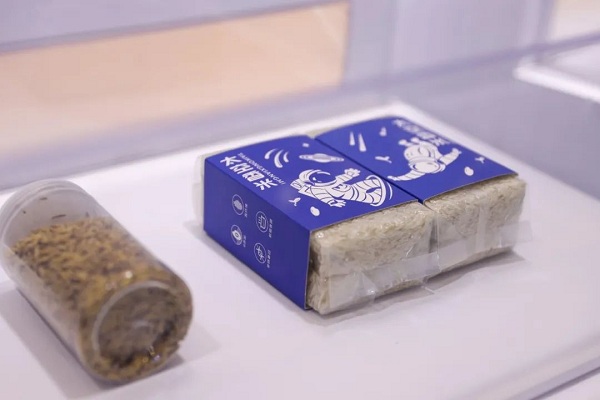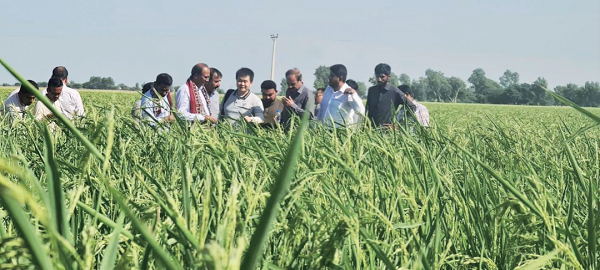Wuhan seed companies prosper with BRI members

The space fragrant rice sample developed by Qingfa-Hesheng Seed Co. [Photo/WeChat account of Optics Valley of China]
Leveraging the huge opportunities brought about by the Belt and Road Initiative (BRI), Wuhan seed companies are benefiting people around the world. Last year, Wuhan exported 3,780 metric tons of crop seeds, earning a whopping $15.4 million.
Companies engaged in international seed trade must have an International Seed Testing Association (ISTA) certification, which acts as a sort of visa for international seed trade.
Qingfa-Hesheng Seed Co, a pioneer of Wuhan's seed exports based in the East Lake High-tech Development Zone (also known as Optics Valley of China, or OVC), established the first ISTA member laboratory in Central China in 2021, making it easier for Wuhan and Hubei seed companies to expand overseas markets.
After 20 years of unremitting efforts, Qingfa-Hesheng has registered dozens of new varieties of rice, rapeseed, and vegetables overseas, sowing Wuhan's seeds in more than 20 countries involved in the BRI.
In Uganda, new varieties such as TM93 and IQs73 have been bred. In Pakistan, Qingfa-Hesheng has registered new varieties such as QT0413, Komal, Hs9393, and Hs9022, among which Komal has become a major promoted variety in Pakistan.

Officials from the Pakistan Agricultural Research Council research a breeding base belonging to Qingfa-Hesheng Seed Co in Wuhan. [Photo/WeChat account of Optics Valley of China]
Hubei Provincial Seed Group began to engage in international seed trade as early as 1999. Currently, the company has a presence in more than 20 countries and regions in Asia, Europe, Africa, and South America, with an annual export of around 2,000 tons of seeds, ranging from rice, cotton, rapeseed to maize, with a cumulative output of over 50 million kilograms of seeds, increasing food production by 1.18 billion kg in the recipient countries.
The group ranked first in terms of seed export volume every year from 2007 to 2012, according to data from the General Administration of Customs.
It has also established wholly-owned companies, research and breeding stations and demonstration centers in countries such as Pakistan, Bangladesh, and Ecuador.


